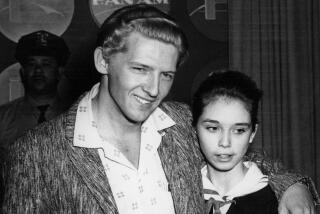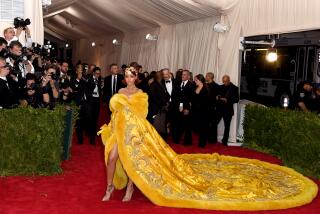A Great Day in Hollywood
For a town transfixed by its show biz heritage, Los Angeles still has some remedial reading to do. The Hollywood history books are only now beginning to include the achievements of African American directors, writers, actors, musicians, cinematographers and other technicians.
Consider the co-originator of the Shim Sham Shimmy. At 97, entertainer Leonard Reed has a show biz resume so long you could blink and miss the exuberant tap dance he created in the 1920s with partner Willie Bryant. Reed was among the groundbreakers honored last month at the 10th Annual African American Film Marketplace and S.E. Manly Short Film Showcase. Nearly 20 senior talents gathered at Raleigh Studios for an awards ceremony, reminiscences and a little entertainment. “We don’t care how small their role was, or if they were a member of the band,” says Sandra Evers-Manly, president of the nonprofit Black Hollywood Education & Resource Center, which sponsored the four-day networking event. “This is our way to say thank you.”
For the record:
12:00 a.m. Dec. 18, 2003 For The Record
Los Angeles Times Thursday December 18, 2003 Home Edition Main News Part A Page 2 National Desk 0 inches; 25 words Type of Material: Correction
Entertainment pioneer -- The photograph caption with a Dec. 14 Los Angeles Times Magazine article on African American entertainers misidentified Lynn Hamilton as Olga James.
For The Record
Los Angeles Times Sunday January 04, 2004 Home Edition Los Angeles Times Magazine Part I Page 4 Lat Magazine Desk 1 inches; 41 words Type of Material: Correction
The caption for the photograph that accompanied the article on African American entertainers (“A Great Day in Hollywood,” Metropolis, Dec. 14) incorrectly identified a woman in the top row, standing fourth from the left. It is Lynn Hamilton, not Olga James.
Reed, who was an original producer at the famed Cotton Club in Harlem, was living in Los Angeles by the ‘40s. He produced shows at Los Angeles venues such as the Mayan, Orpheum and Lincoln theaters. His performing arts studio at Hollywood and Vine offered classes for more than three decades. A West Covina resident who still teaches tap dancing, Reed regaled the audience with bittersweet memories of the color line. He brought the crowd to its feet with a rendition of the Shim Sham Shimmy, for which he was joined by Pauline Jones, a Cotton Club and Apollo dancer from the 1930s who once performed with Larry Still’s Beige Beauties.
“Age doesn’t matter,” says Linda Hopkins, 78, a blues, gospel and jazz singer and Tony Award winner who appeared in films and in TV projects such as “Black and Blue” and “Go Tell It on the Mountain” and still performs in Los Angeles clubs. Hopkins got the evening’s biggest laugh just by singing the line, “Meet me with your black drawers on.” Actress Jessie Mae Holmes recalled eating sack lunches curbside with other black children on the Culver City set of “The Little Rascals” while the white children received catered meals at tables. But Holmes, wearing a fur coat she purchased thanks to her role in the 2000 film “Big Momma’s House”--says success is the ultimate reward. “When I came back, I came back in a limousine.”
Ivan Dixon, best known as Sgt. James “Kinch” Kinchloe from the popular ‘60s sitcom “Hogan’s Heroes” and a prolific TV director, recalled appearing with Langston Hughes and fellow honoree Buddy Collette at Hollywood’s Ivar Theater during the 1960s. Collette, 82, a reed master who grew up playing jazz in Watts with Charles Mingus, was lauded for breaking the color barrier on network television as leader of the band for the show “You Bet Your Life” with Groucho Marx in 1950. “I hope we keep this going,” Collette said.
Brock Peters, who starred as Tom Robinson in the film “To Kill a Mockingbird” as well as in numerous productions onstage and in television, may have summed it up best: “Try to give back whatever you have been given. It has not been accomplished alone.”
More to Read
The biggest entertainment stories
Get our big stories about Hollywood, film, television, music, arts, culture and more right in your inbox as soon as they publish.
You may occasionally receive promotional content from the Los Angeles Times.






